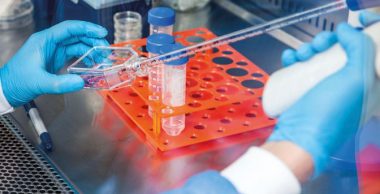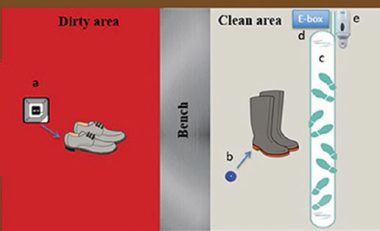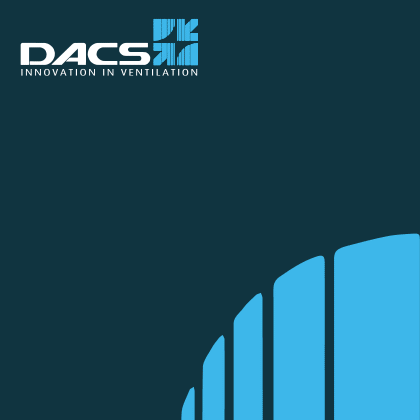Content available at: Indonesia (Indonesian) Melayu (Malay) ไทย (Thai) Tiếng Việt (Vietnamese) Philipino
Endemic and emergent diseases remain a constant threat to poultry production, welfare, and the economy of the poultry industry worldwide. The prevention and control of highly pathogenic avian influenza (HPAI), Newcastle disease, and all other diseases depend mainly on implementing complete biosecurity compliance management programs.
Biosecurity encompasses infrastructure, technologies, techniques, management, and basic hygiene practices.
While poultry facilities, fencing, and equipment locations should be designed to facilitate biosecurity practices, effective communication is always a crucial factor.
- Biosecurity measurements have been discussed many times. Effective biosecurity depends on strict, constant, and daily compliance at the farm and regional levels. Compliance with biosecurity, such as consistently following sanitation protocols, changing footwear, or respecting areas before entering a production facility, has been reported to reduce diseases significantly.
Unfortunately, poor compliance with biosecurity is an endemic problem in all types of animal production systems worldwide, and it is the main reason biosecurity may not be effective.
In all cases, the human factor is critical.
Many experts in biosecurity have concluded that to be successful in this task, it is necessary to create a culture of biosecurity, address personality traits, provide experiences, and most importantly, ensure continuous education.
Applying new technologies to monitor, audit, and ensure biosecurity is also crucial.
However, it’s important to understand that no single intervention or corrective action can solve the problem of low biosecurity compliance.
THE HUMAN FACTOR IN BIOSECURITY
- Human behavioral factors are crucial to implementing effective biosecurity.
The lack of biosecurity compliance is so prevalent in the whole animal industry that it has raised the need for a new area of research.
-
- A better understanding of the complex human decision-making process influencing workers’ willingness to comply with biosecurity protocols requires innovative research approaches and data-collection techniques.
Unchanged:
- A better understanding of the complex human decision-making process influencing workers’ willingness to comply with biosecurity protocols requires innovative research
Humans should participate in the strategy, tactics, and operations, which are guided by a long-term objective. Biosecurity issues at the strategic scale are often related to network interactions of people located in diverse facilities and service providers across production chains.
Everybody who works or provides a service in a poultry facility must understand and follow the rules and procedures.
At the tactical level, farm managers or owners decide whether or not to invest in and implement preventive biosecurity protocols. From a narrower, more localized perspective, operational-level biosecurity can be viewed as a continuous series of decisions made by animal production workers indicating their willingness to follow or comply with daily biosecurity protocols.
- The operational, tactical, and strategic levels of biosecurity are interconnected.
- For example, tactical decision-making influences operational-level protocols.
- Moreover, while it is known that operational-level compliance with biosecurity will impact the implementation and efficacy of tactical and strategic biosecurity decisions, limited feedback describing operational-level behavior is currently available to inform tactical- and strategic-level decision-making.

Pressure to complete work efficiently with time constraints has created scenarios where farm workers find it unrealistically challenging to complete their jobs while complying with biosecurity standards.
Research has suggested that poultry farmers in the United States exhibit risk tolerance but may be more likely to implement or comply with biosecurity as their perceived risk of infection increases.
- Indeed, as the actual infection risk increased, so did compliance with a biosecurity practice.
- The certainty of infection risk information is also expected to affect worker biosecurity implementation and compliance.
- However, the effect may change depending on the domain of interest, i.e., tactical vs. operational.
Worker decisions at the operational level have direct economic and sociological consequences when an outbreak occurs. Social cues, all nonverbal communication, and examples will result in different compliance strategies among individuals. The behavior of others, even if not directly impacting the individual, will impact their decision-making to comply with biosecurity measurements.
- Then, social incentives and social norms play an essential role in maintaining compliance.
Workers in an animal facility may be exposed to various information about the consequences of an animal infection.
Still, they balance the cost of infection with complacency and a tendency to become lax in day-to-day activities.
It is generally perceived that short-term visits to the facilities are lower threats, and consequently, biosecurity procedures are forgotten in these cases, becoming the most common cause of outbreaks.
This relaxation of biosecurity effort has been examined from a temporal perspective, with evidence suggesting that people view the likelihood and impact of an animal disease event to be reduced as the time the event increases. Referred to as temporally based psychological distancing, the farther in the past an event occurs, the less likely and impactful such an event is perceived to be.
Studies have indicated that continuous training programs coupled with measure-specific training sessions based on observed needs should address issues related to visits by all poultry personnel and visitors.
- The training should emphasize that biosecurity procedures must be applied with the same rigor regardless of the duration and moment of the visit.
- Introducing new posters with the grower’s list of required biosecurity measures may enhance short-term compliance.
- But constant rotation of information is necessary.
Training should also address the notion of threat perception when engaging in protective behavior. This means infusing the concept that animal diseases may affect them directly in their income and their own health.
- Studies have demonstrated that being a member of a grower’s family improves biosecurity compliance. Nevertheless, a personality trait is always necessary to comply with biosecurity.
- A study conducted by Racicot et al. (2012) identified that compliance was associated with people who showed responsibility, complexity, and action-oriented traits.
TECHNOLOGIES TO IMPROVE COMPLIANCE
RFID chips
Recently, Racicot et al. (2022) evaluated two technologies based on radio-frequency-identification (RFID) to monitor and continuously improve biosecurity compliance in poultry facilities.
Farm boots were equipped with RFID chips placed under the soles.
Three antennas in the barn entrance were connected to the RFID:
- The first in the frame of the exterior door identifying the person entering the barn (access card already used by employees),
- The second in the dirty area, allowing for the detection of chipped farm boots (indicating biosecurity non-compliance), and
- The third in the clean area, connected to the hand sanitizer, detecting hand sanitization when entering and leaving the clean area as well as the RFID chips in farm boots (indicating compliance with changing boots).
Two pressure mats (one in the dirty area and one in the clean area) were also installed in the barn entrance to facilitate the detection of visitors, assess the direction of people (i.e., entering vs. leaving), and detect a lack of compliance if farm boots were recorded in the clean area (Figure 1).
Results confirmed the ability of the RFID system to monitor boot and hand sanitizing compliance. A continuous monitoring system seems to improve biosecurity compliance, with almost twice the compliance percentage compared to previous studies using hidden cameras.
- Participants reacted each time the alarm sounded, often wondering what they may have done wrong.
- Participants reported that the RFID system was helping increase daily compliance and recommended using it on a larger scale to improve overall compliance. They reported being comfortable with shoes being chipped and did not find the project intrusive.

Figure 1. Radio-frequency-identification-based (RFID) real-time continuous automated monitoring system. (a) Soft chips inserted in work shoes used by personnel getting to the farm; (b) rigid chips inserted in the soles of farm boots; (c) RFID antenna; (d) Device (e-box) with data management program; (e) hand sanitizer device. Source: Racicot et al., 2022 Front. Vet. Sci. z
Cameras
The same group led by Racicot and collaborators had evaluated in 2012 hidden cameras at Quebec poultry farms. They documented 44 biosecurity lapses workers and visitors made over four weeks.
The presence of a visible camera in a barn entrance enhanced overall visit compliance, specifically boot and area compliance.
However, six months after its installation, compliance with the area during the visit was the only biosecurity measure enhanced at the medium-term assessment.

Compliance declined over time
- Audits of biosecurity did not have any impact on improving daily biosecurity compliance whenever another person was not present.
These results indicated that an automatic system for monitoring and recording each person’s activities could improve biosecurity compliance even more. More innovation is needed to implement this technology in other biosecurity practices. Technologies can help to overcome the challenges caused by the human factor in biosecurity compliance.
















